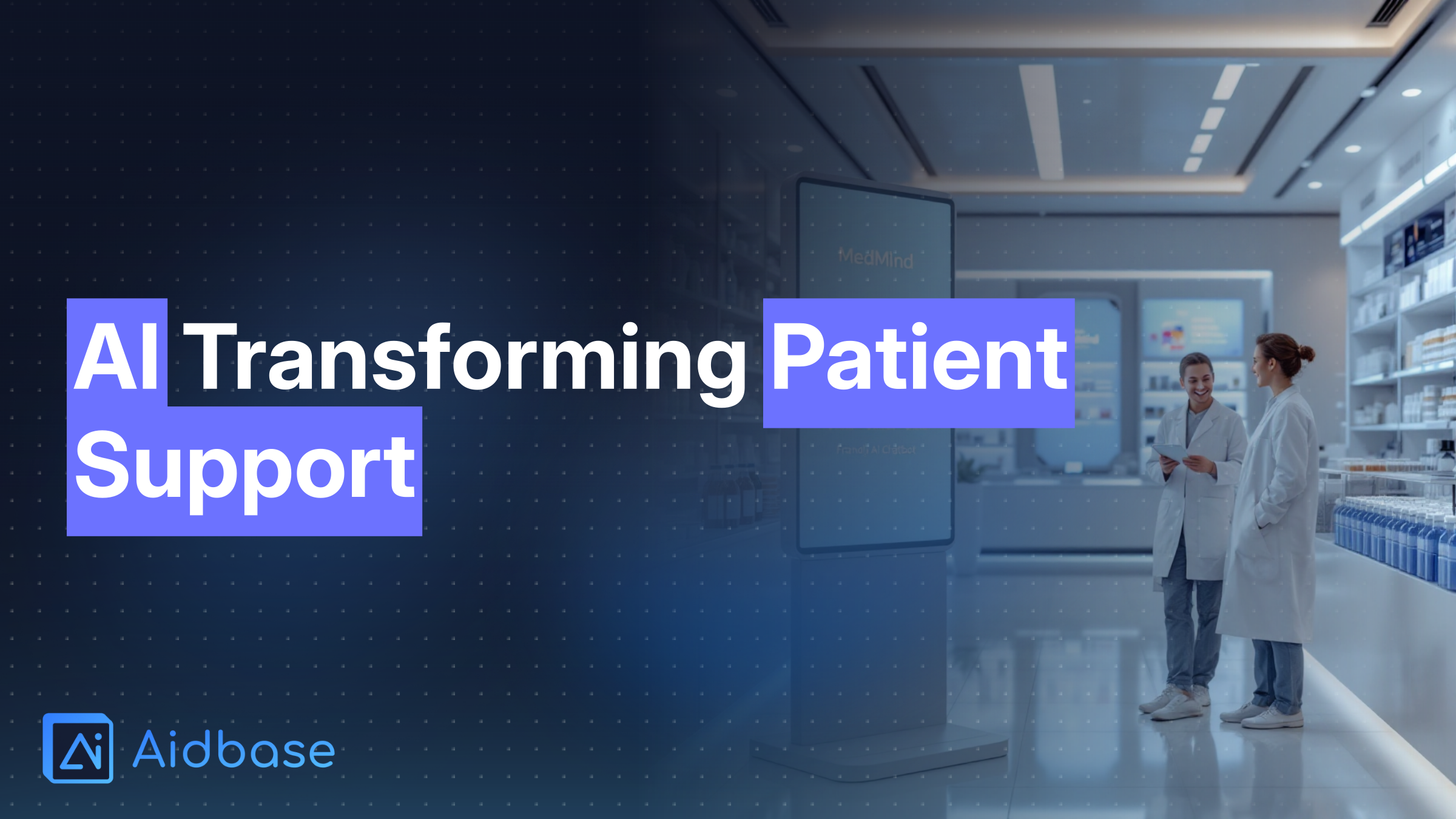Artificial intelligence is transforming customer support in the pharmaceuti...

Artificial intelligence is revolutionizing customer support across various industries, and the pharmaceutical sector is no exception. By integrating AI-driven solutions, companies can provide accurate medication information and round-the-clock assistance, ultimately enhancing patient engagement and compliance. Let’s explore how these innovative technologies are transforming the landscape of healthcare communication.
The evolution of AI in customer support has reshaped the way companies interact with their clients. In customer service settings, AI systems leverage data analytics and natural language processing (NLP) to understand and solve user inquiries swiftly. For the pharmaceutical industry, this means deploying tools that can deliver precise information on medications, clarifying dosage guidelines and potential interactions. As AI becomes more adept at interpreting complex queries, healthcare providers can now offer real-time, personalized assistance that bridges the gap between patient needs and professional medical advice.
In the healthcare sector, the integration of AI is not just about improving communication—it’s about enhancing overall patient care. Pharmaceutical companies and healthcare providers are increasingly relying on AI to assist in various tasks, such as:
These innovations represent a significant shift in how the pharmaceutical sector communicates with its stakeholders, enabling safer, faster, and more efficient interactions. The benefits extend to both healthcare providers and patients, setting new standards in medical care.
Patient engagement is a crucial component of effective healthcare, and AI solutions are enhancing this interaction by providing clear, accessible information at the point of need. Modern AI-driven platforms can:
For example, AI-powered chatbots have been demonstrated to process complex medication queries and provide actionable insights, ensuring patients remain informed and proactive in managing their health. By offering a more interactive and engaging interface, these systems empower patients, building trust and improving overall treatment outcomes.
One of the most significant advantages of integrating AI into pharmaceutical customer support is the ability to offer non-stop service. AI chatbots and virtual assistants are available around the clock, ensuring help is never far away no matter the hour. These systems are highly efficient due to their capability to process and respond to inquiries in real time. Some key points include:
Research has shown that in comparisons between AI chatbots based on advanced models like GPT-4 and licensed pharmacists, chatbots provided a comparable level of accurate responses, with proactive risk mitigation information appearing in 70% of interactions (see PMC study: https://pmc.ncbi.nlm.nih.gov/articles/PMC11097738/?utm_source=openai). The implementation of such chatbots can substantially improve the efficiency of customer support while enhancing patient safety.
One of the paramount challenges in patient care is ensuring medication adherence. Incorrect dosages or neglecting to follow prescribed regimens can have serious health implications. AI technologies mitigate these risks by:
For instance, AI tools have been demonstrated to reduce dosage errors significantly and enhance patient adherence, as highlighted in recent studies (see Simbo AI article: https://www.simbo.ai/blog/improving-medication-safety-how-ai-tools-are-reducing-dosage-errors-and-enhancing-patient-adherence-77868/?utm_source=openai). Such advancements not only improve safety but also lead to better health outcomes.
Real-world examples bring abstract concepts into focus. Several pharmaceutical companies have successfully implemented AI-powered customer support systems, leading to notable improvements in both service delivery and patient safety. Consider these case studies:
These success stories underscore the transformative power of AI. Tools like Aidbase help streamline AI implementation by offering robust support for data integration and patient engagement strategies.
Despite the promising benefits, there are inherent challenges and considerations when adopting AI in the pharmaceutical industry. Key concerns include:
Addressing these concerns head-on will be vital to the sustained success of AI in pharmaceutical customer support. Developers must work closely with healthcare professionals and regulatory bodies to ensure ethical and effective use of these technologies.
Looking ahead, the future for AI-powered customer support in the pharmaceutical industry is exceptionally promising. Advancements in AI research and technology will continue to drive improvements in patient engagement and medication safety. Future trends may include:
These advancements hold the potential to not only bolster patient engagement and adherence but also revolutionize the broader landscape of healthcare delivery and communication.
AI-powered customer support is fundamentally transforming how the pharmaceutical industry engages with patients and healthcare professionals alike. From providing accurate medication information to ensuring round-the-clock assistance through advanced chatbots and virtual assistants, AI is paving the way for improved patient outcomes and safer medical practices. By understanding and addressing the challenges associated with its adoption, the industry can look forward to a future where AI plays a central role in revolutionizing healthcare communication and patient care.
Embracing these technological advancements, with thoughtful integration and a focus on ethical practices, will enable the pharmaceutical industry to truly harness the potential of AI for a healthier, more connected, and more responsive future.